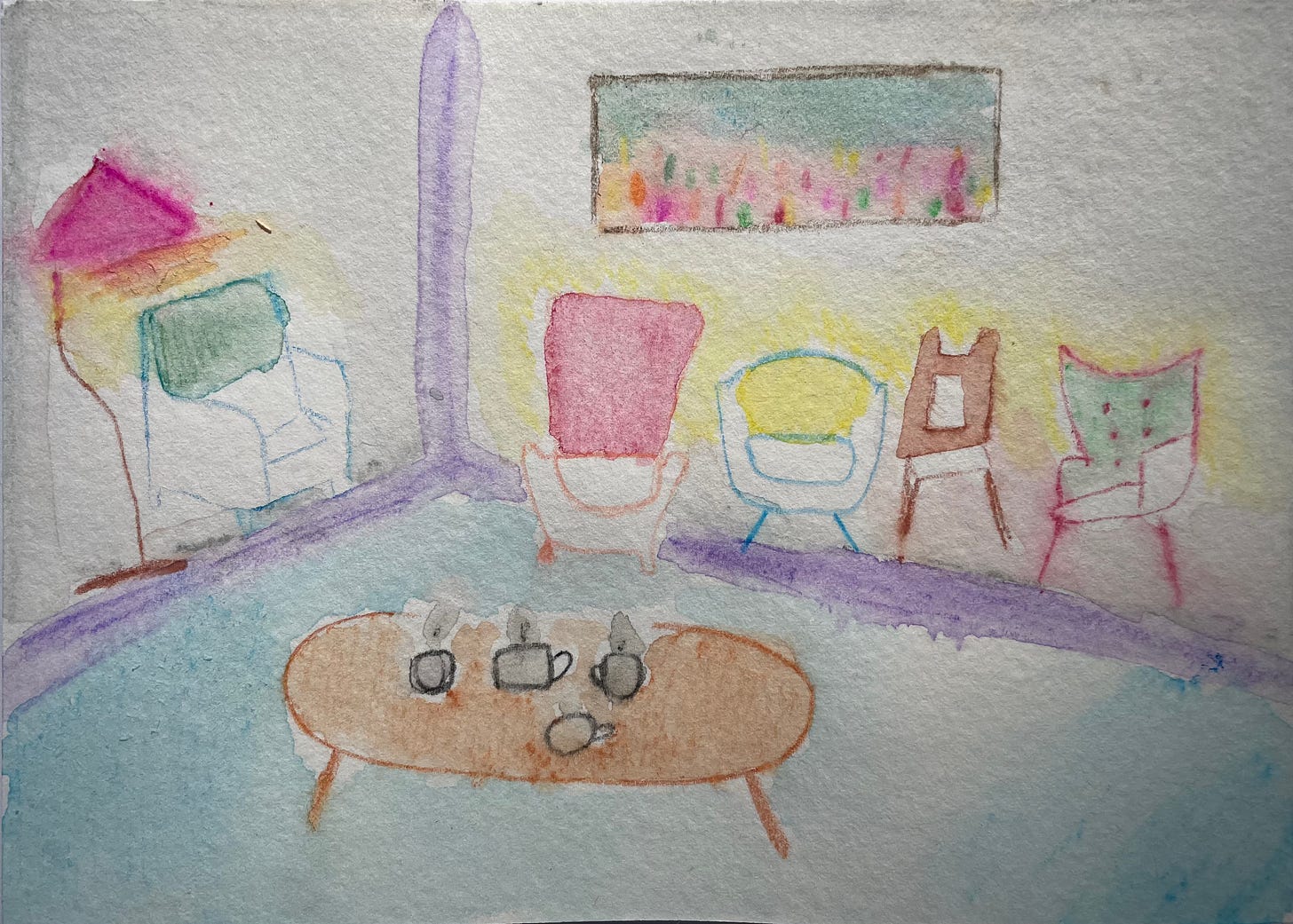I’ll never forget walking down my tree-lined street, tears falling silently as I detailed the ways my physical and mental health had slowly shape-shifted until one day, I woke up not recognizing the body and mind I inhabited. It was early November. Sunny. My friend’s soothing voice echoed into my right ear.
She listened to me and gave me good advice.
Then she texted me the number of her therapist.
This was my third therapist. My previous therapeutic experiences were profoundly helpful to me in (beginning to) dismantle perfectionism, untie my identity from my work/productivity, and to better understand myself. But, after the more “obvious” work was addressed, I felt the sensation in my body of something waiting to be uncovered, but my mind could not access it. I couldn’t “think” or “talk” to discover what was begging for tending. In other words, I felt stuck, but also had zero clue of how to come closer towards revealing the truth underneath.
She introduced the approach she takes with clients – Internal Family Systems (IFS). At this point, in late 2021, I really had no understanding of the underpinnings of the approach (It since has become more popular!). IFS was developed by Dr. Richard Schwartz through his clinical practice and psychological training. He began to notice patterns in his clients that informed the development of IFS. According to the IFS institute: “IFS® is a transformative tool that conceives every human being as a system of protective and wounded inner parts led by a core Self.”
My therapist began to explain the perspective that all of us are made up of many parts which develop in response to the demands and needs of our inner and outer world. Parts help us cope with and exist alongside the challenges we face. There are three types of parts: managers, firefighters and exiles.
Managers prevent unwanted feelings from reaching our awareness.
Firefighters suppress our feelings once we become aware of them.
Exiles are vulnerable parts of us that hold deep wounds.

Importantly, in the words of Dr. Schwartz, there are No Bad Parts. Each and every part of us is doing everything it can to protect us and keep us safe in the way it can. However, in my experience, the viewpoint of my parts can be fairly narrow and solutions for one part can offer challenges for other parts.
When it comes to nutrition counseling, IFS can be a profound addition to nutritional healing.
For example, many of my clients restrict their food intake. Let’s call this restrictive part “Part A” — through restriction, they are meeting a need (perhaps decreasing the sensations of anxiety or increasing a sense of inner stability). However, another part of them, “Part B”, really desires to be well fed. Part B resists and creates inner conflict when Part A restricts. Ultimately, my client feels a lot of stress and overwhelm as these two parts exist in conflict within.

Parts sometimes are not aware that within the system, there is also a Self. Parts are separate from Self and our inner Self is able to tend to our system in a more holistic way (considering the multitude of our parts, rather than just one part). A tenent of IFS is to connect to self energy which includes understanding, witnessing, and experiencing compassion (or curiosity or clarity or connection or creativity or calmness or confidence or courage) towards parts as a part of you not as you.

I offered five parts that are connected to a chaotic mental experience a seat + coffee. Other parts are outside the window.
I have always had familiarity of (some of) my parts. I felt the wave of sensation that takes over me and catapults me to near-obsessive task accomplishment. I sense my energy dissolving and numbing triggered by conflict. In that first session, I knew this modality was the key to get to those parts of me that simmer-in-hiding. Now I understand that my boredom is a part. My unease is a part. My doubt is a part. My fear is about a dozen parts. Suddenly, I can seek to know them and they will tell me what I need to know about them.
Looking back, the therapeutic application of the one principle that all my parts are valuable and have important things to say has transformed how I interpret and tend to my mind and body. I sit in therapy, voice the chatter of judgements inside my mind, and immediately the judgments are met with compassionate, appreciative language from my therapist. Whooooosh: my inner critic was not the enemy. The pain I avoided and judged could be felt in the safe container of my system.
All of me is welcomed, here.
All of me is welcome.
If you are healing your relationship with food and seeking a dietitian who utilizes IFS in counseling, book a free Discovery Call today to see how IFS can support your healing.
Comments +